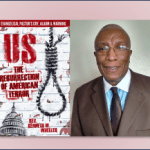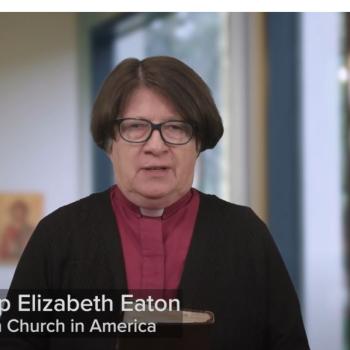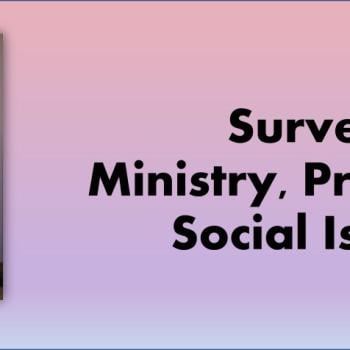God invites us to participate in gleaning divine abundance from the Earth so that all are nutritiously fed with equity and joyous fellowship.
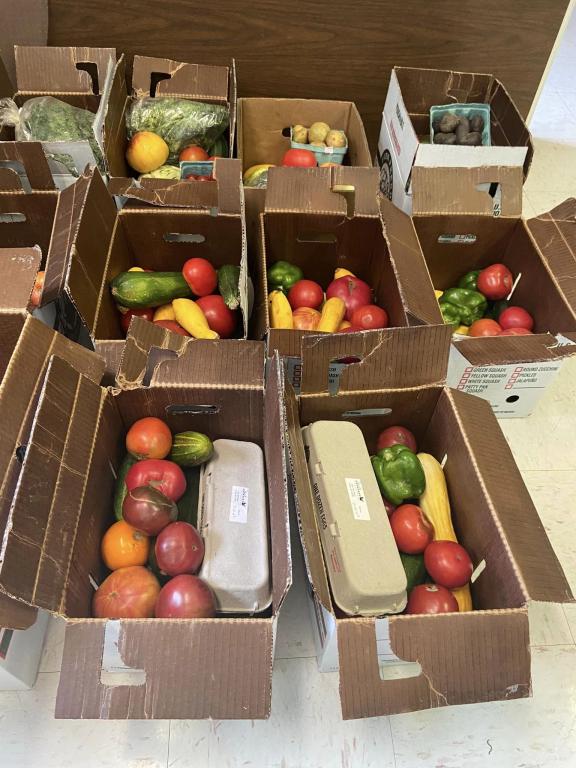
Here are ideas for reading and preaching Isaiah 55:1-5, God’s invitation to abundant life, and Matthew 14:13-21, the story of Jesus feeding thousands of people. This is part of the EcoPreacher 1-2-3 series to equip preachers and congregations for engaging the Bible through an ecological lens. These texts are assigned as part of the Revised Common Lectionary for the Tenth Sunday after Pentecost, Year A.
Eco-Exegesis
Eco-exegesis is a method of interpreting the biblical text through a green lens using the principles of ecological theology.
Isaiah 55:1
Ho, everyone who thirsts, come to the waters; and you that have no money, come, but and eat! Come, by wine and milk without money and without price.
Isaiah’s vision of divine abundance counters the narrative of scarcity and the systems of commodification that often characterize human economies. In God’s economy, no one has to pay for clean water. No one is charged money for food and the necessities of life. Living in covenant with God and each other means that the community ensures that everyone has what they need, not just to survive, but to flourish.
What’s more, this blessing of divine abundance is not limited to one particular tribe or nation. God intends for Israel to invite all peoples to participate in this economy of mutual care and generosity. There is no fear of the stranger or outsider in this God-ordained society. There is no need to hoard or stand guard. Isaiah shows us what is possible when everyone brings what they have, shares what they bring, and delights in the “rich food” (v.2) that results.
Matthew 14:20
And all ate and were filled; and they took up what was left over of the broken pieces, twelve baskets full.
The story in Matthew 14:13-21 of Jesus feeding thousands of people echoes Isaiah 55:1-5 where God calls people to enjoy divine abundance without cost. We might see this as a “holy experiment” where Jesus’s teaching, community organizing, and equitable feeding all happen in a wilderness place outside of the reach of Rome’s colonizing grasp.
By charging the disciples to take the initiative in finding food, Jesus empowered them to reenact an archetypal story that has shaped the Jewish people for generations: God giving manna in the wilderness (Exodus 16). The authors of Eco Bible remind us that “the Torah stresses the importance of each family gathering only as much as they needed, which would have protected them from the risks of overeating while still ensuring a daily moment of gratitude to God” (131).
As a result, everyone has enough to eat and pays nothing for this vital sustenance. It is a gift from God.
Nothing wasted
It’s worth noting that just as in the Exodus story, the Gospel of Matthew shows us that nothing goes to waste when Jesus feeds the people in the wilderness. They collect the leftovers and have twelve baskets full of bread. This implies that the food was taken home by some who had gathered there for the teaching and healing. This is an important detail that can direct churches to think about their role in eliminating food waste while helping to ensure that those in poverty still receive enough food to eat.
A church that gleans together . . .
One of the ways congregations can continue Jesus’s feast of blessings is to find ways to bring fresh, nutritious food to the food deserts of their community. This was what Rev. Dr. Stephanie Moon did with her congregation, North Middletown Christian Church, in North Middletown, Kentucky. They began a project of gleaning fresh produce from local farmers’ markets at the close of the day and took it to low-income neighborhoods.
She received guidance from the director of Glean Kentucky, an organization that gathers and redistributes excess fresh fruits and vegetables to nourish hungry children and adults in Kentucky. Stephanie visited local farmers and talked with growers to make arrangements for having church volunteers deliver food directly to local residents. This eliminated the need for storage or refrigeration.
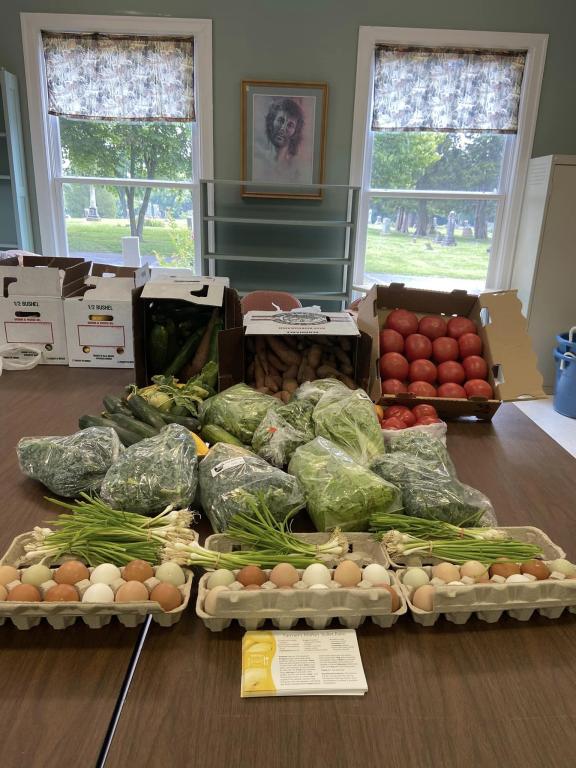
Stephanie and her congregation began building relationships with residents in neighborhoods where they delivered the food. And so, word quickly spread that free fresh produce from the gleaning would be available every week. “Within a few weeks, church members were delivering to twenty-five people. And by the end of the summer, it was approximately forty. The number of recipients and the amount of food received grew in direct correlation,” Stephanie told me.
A project like this can expand a congregation’s comfort zones and interact with people in ways they hadn’t previously explored. Partnering with programs like Glean Kentucky can make connections between the church, local orchards, farms, and residents in need.
When all eat and are fed without price or cost – and without predatory profit or profligate waste – this is something everyone can celebrate!
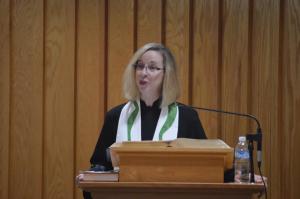
1 Eco-Idea
The Eco-Idea is one succinct statement that tells us who God is and/or what God does in relation to Creation and how we should respond as people of faith.
God invites us to participate in gleaning divine abundance from the Earth so that all are nutritiously fed with equity and joyous fellowship.
2 Eco-Questions
Eco-Questions are what we can ask to help a congregation draw out the implications of the Eco-Exegesis and Eco-Idea.
- What are the gleaning organizations near your congregation? Check out the National Gleaning Project and discuss with your congregation how they might participate in efforts to reduce food waste and ensure the hungry are fed in your community.
- What does your church do with food waste after a community meal? Is it composted or thrown in a landfill? What are ways you can reduce the amount of food you throw away?
3 Eco-Actions
Eco-Actions are ways that a congregation might respond to the Eco-Idea and Eco-Questions. One of these possibilities may have salience for your ministry context.
- Encourage the gardeners in your congregation to grow an extra row of vegetables in their gardens and donate the produce to a local food bank or a congregation that gives out free food.
- If your church doesn’t already have a compost bin, consider getting one and educating everyone on how to use it. Work with gardeners in the community to distribute the compost so that leftover food will be passed down the food chain and fertilize future crops and plants. The United Church of Christ has a helpful webpage about church composting which you can check out here.
- Take up a special offering this Sunday to donate to the gleaning organization closest to your congregation. If you live in Kentucky, you can donate to Glean Kentucky here.
Read also:
Gleaning, Youth Climate Strike, and Justice: Golden Apples in the Sun
Food & Faith: Preaching Deuteronomy 4 Through a Green Lens
A Blessed Ecosystem of Faith: Psalm 1, Jeremiah 17:5-10, Luke 6:17-26
EcoPreacher 1-2-3 is a partnership between the Rev. Dr. Leah Schade and the Interfaith Center for Sustainable Development, publishers of Eco Bible, a Jewish ecological commentary on the Hebrew Scriptures. EcoPreacher 1-2-3 provides Creation-centered sermon preparation that is short, accessible, and based on a solid biblical foundation. To see other EcoPreacher ideas and to sign up to receive future EcoPreacher 1-2-3 installments, click here.
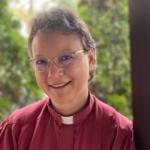
The Rev. Dr. Leah D. Schade is the Associate Professor of Preaching and Worship at Lexington Theological Seminary in Kentucky and ordained in the ELCA. Dr. Schade does not speak for LTS or the ELCA; her opinions are her own. She is the author of Preaching in the Purple Zone: Ministry in the Red-Blue Divide (Rowman & Littlefield, 2019) and Creation-Crisis Preaching: Ecology, Theology, and the Pulpit (Chalice Press, 2015). She is the co-editor of Rooted and Rising: Voices of Courage in a Time of Climate Crisis (Rowman & Littlefield, 2019). Her newest book is Introduction to Preaching: Scripture, Theology, and Sermon Preparation, co-authored with Jerry L. Sumney and Emily Askew (Rowman & Littlefield, 2023).



